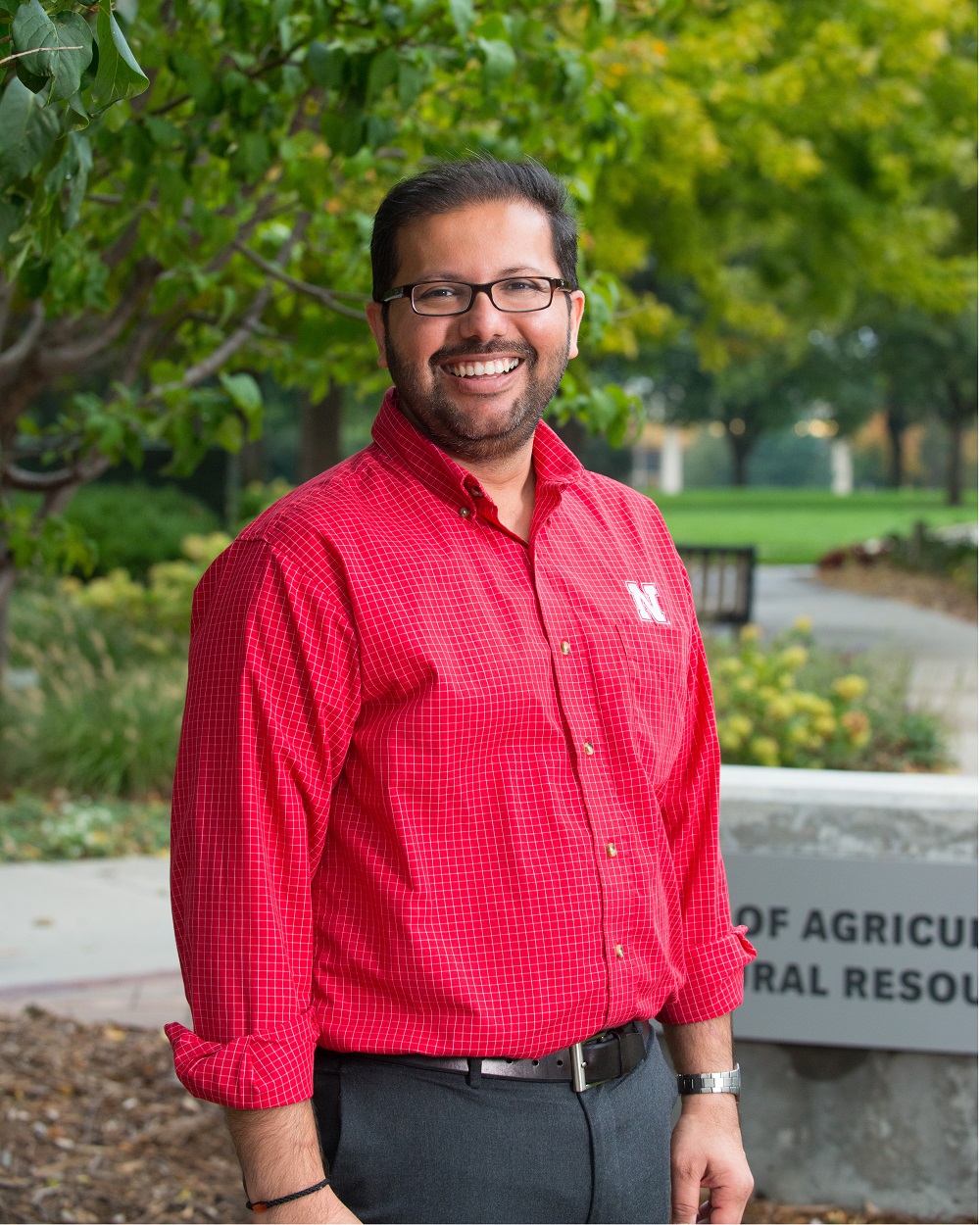
Deepak Keshwani
Associate Professor of Biological Systems Engineering, College of Agricultural Sciences and Natural Resources Faculty Fellow, Daugherty Water for Food Global Institute Faculty Fellow
For Dr. Deepak Keshwani, making sense of complex systems is a way of looking at the world. Deepak uses models to research bioprocesses and biological systems at the intersection of water, food, and energy, and how those systems connect. However, these are not the only intersections that interest him—where teaching meets research is where Deepak finds that he most supports the University’s mission to deliver impactful, holistic experiences for students.
In research, Deepak is most driven by a desire to develop a fundamental understanding of how biological processes and systems behave through mathematical modeling. Creating models helps researchers accomplish three types of goals: models can predict future behavior of a system, models help test scenarios or hypotheses that might be otherwise difficult to accomplish due to cost or other difficulties, and models can serve to control and optimize systems. Deepak's current and past work has dealt with models from the cellular level to the ecosystem level.
One of Deepak's current research projects studies the food-water-energy nexus. He collaborates with Dr. Jeyam Subbiah on the project, which examines how corn, ethanol, and beef production systems connect. Deepak identifies which models make sense to use in these systems, and where those models intersect, aided by his background in biofuels.
Deepak also collaborates with Dr. Tami Brown-Brandl at the USDA ARS Meat Animal Research Center to monitor swine movement data with the goal of building models of swine behavior during finishing phase. The group collects data such as genetic variety, sex, and aggressiveness of the animals to see if they could identify a behavioral model for the animals. This research could help producers make better decisions in handling animals as well as could assist breeders and geneticists to understand the genetics of swine behavior.
Over half of Deepak's appointment is in teaching, and this is reflected in his heavy involvement with CASNR. His primary teaching and advising responsibilities are in the Mechanized Systems Management program. He also serves as a CASNR Faculty Fellow primarily focused on student programming and student success in the sophomore year. IANR awarded Deepak with the 2017 Omtvedt Innovation Award in Teaching, which recognizes excellence and innovation in teaching that shows strength and promise within the institution.
Deepak believes that collaborations and intersections between formal classroom experiences and co-curricular experiences are where learning truly takes place. Reflecting this belief, Deepak serves as the faculty sponsor for the Ag Futures Learning Community in the Massengale Residential Center on East Campus, comprised of about 30 students in about 8 different majors.
As part of the learning community, Deepak teaches AGRI 192: Justin Smith Morrill Scholar Seminar, a year-long seminar course for first-year students that explores leadership and civic engagement in the context of critical issues in food, agriculture, and natural sources. Students in the program learn about the land-grant mission of UNL and complete a service learning project at the Justin Smith Morrill Homestead in Vermont.
Collaborations and intersections are what make BSE special. Deepak appreciates working in a department with the breadth that BSE has. BSE allows faculty to tackle many different issues and work with many different constituents, a unique situation that allows for collaborations and creativity between department members to serve our stakeholders.